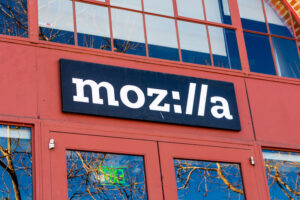
Mozilla.ai Launches with $30M to Build Trustworthy AI

(Michael Vi/Shutterstock)
Mozilla has announced it is launching an AI startup, Mozilla.ai. The new startup will be aimed at building a trustworthy and independent open-source AI ecosystem and is backed by an initial $30 million seed investment from the Mozilla Foundation, Mozilla’s parent company.
With the wave of enthusiasm for GPT-4, Stable Diffusion, and other generative AI breakthroughs, questions have arisen about AI’s potential benefits and drawbacks. Though these models offer powerful functionality, there are ethical concerns surrounding security, privacy, and bias. Older AI tools like recommendation engines are also becoming more and more influential, opening the door to everything from misinformation to malware.
Mozilla says it recognizes this AI inflection point as an opportunity for building technology with different values and ownership models, and it has been working towards a vision for trustworthy AI by identifying issues, investing in responsible AI startups, and advocating for user-centric design. It will begin with content recommendation tools and transparency tools meant to mitigate the risks of generative AI.
“We’ve learned that this coming wave of AI has tremendous potential to enrich people’s lives. But it will only do so if we design the technology very differently—if we put human agency and the interests of users at the core, and if we prioritize transparency and accountability. The AI inflection point that we’re in right now offers a real opportunity to build technology with different values, new incentives and a better ownership model,” the company said in a blog post.
Moez Draief, managing director of Mozilla, will lead Mozilla.ai. Draief has focused on practical applications of AI as an academic at Imperial College and The London School of Economics and Political Science and in previous industry roles at Capgemini and Huawei. The initial Board of Mozilla.ai will be comprised of Draief, Harvard Business Professor Karim Lakhani, and Credo AI Founder Navrina Singh.
Mozilla also recently announced its Responsible AI Challenge which it says is for developers building AI solutions that are ambitious but also ethical and holistic. The company will be investing $50,000 in the top applications and projects with a grand prize of $25,000 for the first-place winner. Applications will be open starting March 30.
Those who remember the early days of the internet may not be surprised by Mozilla’s focus on trustworthy AI. The non-profit company and maker of the Firefox internet browser is celebrating its 25th anniversary this month. The Mozilla project began in 1998 when Netscape released its browser source code. The project was intended to harness the creative power of thousands of programmers on the internet and fuel unprecedented levels of innovation in the browser market, according to Mozilla. When Mozilla 1.0 debuted in 2002, internet users and developers were fed up with Microsoft’s Internet Explorer browser. IE came pre-installed with Windows and was riddled with security vulnerabilities and bugs that made it frequently crash. Though the Mozilla browser was slower to catch on, the Mozilla community kept innovating. By the time Mozilla’s Firefox browser was released in 2004, eager users were ready for a better experience and downloaded it over 100 million times in less than a year.
Like the early days of the internet, much of the current generative AI innovation and market control is relegated to tech industry giants like Google and Microsoft. Mozilla says it does not see a transparent, trust-building AI approach amongst the big tech and cloud companies with the most power and influence, and the company would like to change that.
“The vision for Mozilla.ai is to make it easy to develop trustworthy AI products. We will build things and hire/collaborate with people that share our vision: AI that has agency, accountability, transparency, and openness at its core,” the company said in its blog announcement. “Mozilla.ai will be a space outside big tech and academia for like-minded founders, developers, scientists, product managers, and builders to gather. We believe that this group of people, working collectively, can turn the tide to create an independent, decentralized, and trustworthy AI ecosystem—a real counterweight to the status quo.”
Related Items:
ChatGPT Brings Ethical AI Questions to the Forefront
Bill Gates Says the Age of AI Has Begun, Bringing Opportunity and Responsibility
ChatGPT Puts AI At Inflection Point, Nvidia CEO Huang Says





























